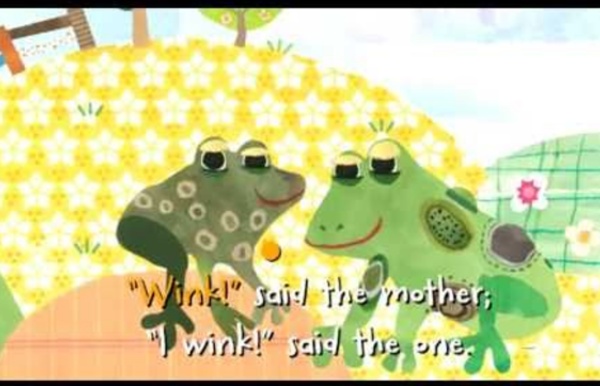



Tools for Teaching A preview of Smithsonian Folkways on iTunes U. Click the image to launch iTunes on your computer. Smithsonian Folkways is committed to offering educational materials to complement the music on our site. Tools for Teaching from Smithsonian Folkways provides ideas and resources for educators to inspire their use of Folkways music from around the world. Curricular experience, activities, streaming videos, liner notes, music samples, and other features are available for free. iTunes U Find Smithsonian Folkways Tools for Teaching at iTunes U.
Whole Child Development Is Undervalued The question is how to make such an approach both systemic and sustainable. Whole Person Socio-emotional, physical, creative, and cognitive capacities are deeply intertwined and equally important in ensuring a child's wellbeing, learning, and growth. Nobel laureate James Heckman, a professor of economics at the University of Chicago, has shown that the non-cognitive skills emerging in early childhood are among the strongest predictors of adult outcomes. The development of these qualities, which rely on an individual's self-worth and self-control, critically outperform any other positive measures of children's long-term outcomes, whether academically or intellectually. The most impactful way of supporting such skills is associated with helping children feel in control of their learning process. Whole Communities The three most effective ways for educators to respond to children's need and support their connection to the surrounding environment are: Whole Societies
Letters and Sounds ‘Melody’ Continue reading the main story Video For more than two decades, my home country of has had a stable democracy, as well as a thriving economy. At the same time, Chile has one of the largest wealth disparities in the world, reinforced by high tuition rates for secondary and college education. This means Chile has practically no social mobility, for how do you build a better future for yourself without education? This was a question I asked myself while making this short film, in which I explore music’s power to inspire children to escape poverty. Curanilahue is a small former coal-mining town that until recently was one of the poorest in Chile. Nearly all of the Curanilahue Orchestra’s children have pursued higher education, and most of them are the first generation in their families to graduate from a university. As this Op-Doc shows, Melody became a conductor for the new Children’s Orchestra in Chonchi, a small town on the distant southern island of Chiloé.
Music and Movement Activities for Toddlers and Preschoolers SPELD SA Phonic Books | SPELD SA The books are grouped in a developing order based on the order of sounds introduced in the Jolly Phonics early literacy program, www.jollylearning.co.uk Each book is published with suggestions on how parents, tutors and teachers can get the most out of the book. SPELD SA provides phonic readers free of charge that suit a variety of ages and abilities. Please use these readers at your discretion accounting for your child or children's abilities, ages and needs. More about the SPELD SA Phonic Books Videos of Ryan practising reading: Video 1 (filmed October 2011)Video 2 (filmed April 2012) SPELD SA phonic books (online flash version) require the Adobe Flash player to be installed. iPads and Tablet PDF are available. If you would like to download a free PDF reader to your computer so that you can turn the pages of each book when you are not online, download the Flipping PDF Reader from here There are currently 199 Free SPELD SA Phonic Books available.
Free Kids Music | Free MP3 song downloads for children! How to teach children English using illustrated storybooks What makes illustrated storybooks such a good resource for teaching young learners of English? The British Council’s Gail Ellis, co-author of a storytelling handbook for primary English language teachers, explains. Listen to an interview with Gail in our podcast and register for her webinar taking place on Thursday, 2 October. Illustrated storybooks provide an ideal resource for helping children learn English. Why use storybooks in the classroom? Teachers can use storybooks to complement an English language course or as the main teaching resource. Storybooks can meet a variety of learner needs The expansion in the teaching of English around the world to ever younger ages, and the variation in policy from one country to another, means that teachers are finding themselves teaching classes of children with diverse learning needs and varying levels of English. Selecting the right storybook What to consider when reading a story aloud Reading a storybook aloud requires preparation.
Reading | Oxford Owl from Oxford University Press Learning to read – and to love to read – is directly linked to children's success at school and beyond. Find out how children learn to read with phonics, and how you can help your child's reading at home. KS2 SATs: Reading test Help your child prepare for the Year 6 reading test. Free eBook library Don’t miss our free eBooks, created to help children aged 3–11 practice reading at home. Oxford Reading Tree Find out about Oxford Reading Tree and Levels, used in schools worldwide. Popular topics Find your reading stage Use this simple test to find out which Read with Oxford Stage is right for your child at home. Reluctant readers Isabel Thomas’ top tips to get children excited about books.Five tips to encourage reluctant readers > Struggling readers Jean Gross CBE tells us how to help a child who is struggling to learn to read.What to do if you think your child is a struggling reader > Featured videos What is phonics? Julia Donaldson reads 'Singing Dad' Dad loves to sing, all the time.